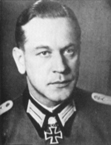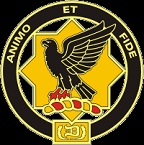madorosh
Posts: 390
Joined: 3/2/2003
Status: offline

|
quote:
ORIGINAL: Hartford688
While acknowledging your points that post Kasserine the US forces did everything, and everything the British did was poor, some of your points seem to contrast with Carlos D'Este's article (not that it is necessarily the gospel truth).
He suggested that Montgomery did NOT have a hatred of Patton; plus a rather different view in Sicily; Montgomery supported Patton to take Messina.
D'Este:
quote:
When the three Allied ground commanders met for the first time in the campaign on July 25, Montgomery proposed that Seventh Army rather than his Eighth Army capture Messina. The myth that there was a race to Messina between Patton and Montgomery existed only in Patton’s mind – and was unfortunately embellished in the film “Patton” in which a smirking Monty meets Patton in the city centre as two competing bands drown one another out. The truth was that Montgomery not only never went to Messina nor had any desire to do so but also once he recognized Seventh Army was better positioned to carry out this task, actually advocated that Patton do it!
and:
quote:
One digression before concluding this installment: when Patton got into serious trouble after slapping two soldiers for what he believed was malingering in U.S. field hospitals, an unfavorable remark about Patton appeared in the Eighth Army newspaper. Montgomery’s policy was to give his editor complete freedom from command interference, however, after the story about Patton appeared, Monty summoned the editor for a chat with his very displeased commanding general. As Montgomery’s official biographer has written: “Monty had been genuinely impressed by Seventh Army’s mobility, speed . . . rugged determination and professionalism – and he would have nothing derogatory printed in Eighth Army newspapers [about Patton].”
Also, just goes to show different views apparently from the same person - James Gavin. Again, per D'Este's articles:
quote:
The First Army staff, already resentful of the change of command, is alleged to have been less than pleased to be under British command. Such resentments, and many seem to be of postwar creation, were not evident to James Gavin, the 82d Airborne commander, when he dined with Hodges and his staff several days later. "The staff spoke of Montgomery with amusement and respect. They obviously liked him and respected his professionalism." For his part, Gavin was impressed with Montgomery as a soldier. "I took a liking to him that has not diminished with the years."
Note that this is the same James Gavin post Market Garden.
For all his other faults, he at least was generally right up with his troops:
quote:
With the exception of Patton, Montgomery was the only senior commander to regularly visit his troops at the Ardennes front. Montgomery’s presence and his decisions to reassign responsibilities and realign units of both First and Ninth Armies was precisely the fitting remedy. For American commanders, to cede ground was considered sinful, however, after visiting St. Vith and determining that if the 7th Armored remained it would be annihilated, Montgomery decreed that further defense of the town was futile and, with Hodges’s concurrence, ordered what was left of the division to withdraw to new positions on December 22. The 7th Armored’s brilliantly orchestrated defense of St. Vith against near-impossible odds had stemmed the advance of Manteuffel’s Fifth Panzer Army until December 23, when the last elements evacuated the shattered town. The defense of St. Vith was a key factor in the German failure in the Ardennes. The official U.S Army historian wrote that Montgomery’s decision reflected his "ability to honor the fighting man which had endeared him to the hearts of the Desert Rats [of the British 7th Armored Division] in North Africa: ‘They can come back with all honor. They come back to the more secure positions. They put up a wonderful show.’" 7 The defenders of St. Vith were unambiguous about their feelings toward the field marshal. "Montgomery saved the 7th Armored Division," said Robert Hasbrouck
Sorry for the long post. But apparently not all Americans (and among them people with much real experience) had such contempt for Montgomery.
I am, of course, an irate Brit! And no, I do not think Montgomery was the best general in the world, but a darn sight better than most make out. And no, I do not think Montgomery was the best general in the world, but a darn sight better than most make out.
Just about the only post in this entire thread worth reading, I think. Field Marshal Sir Bernard Law Montgomery, 1st Viscount Montgomery of Alamein, KG, GCB, DSO, PC, to give him his due (not having known him personally, I will refrain from calling him "Monty"), is probably the most misunderstood figure of the Second World War's senior commanders. The above post goes a long way to explain why this is true. Not that there is a shortage of ink having been spilled about him, but it would seem his critics seem willfully ignorant, and his "competition" is the larger than life product of that great American pastime - the Cult of Personality.
Erik Rutin correctly identified in the first reply the major stumbling block - LOGISTICS. Specifically, ports. But he suggests that taking one was a simple matter. It was not. The Germans doggedly held major port facilities on the western European coast right up to May 1945; reducing them would have been simply far too costly. The Canadians tried to assault one frontally at Dieppe and failed; they launched similar attacks in 1944 at Dunkirk, Cap Griz Nez, and Calais with mixed results. Those port facilities they did liberate (the Germans in Dieppe wisely took flight the second time the 2nd Canadian Division came calling in September 1944) were a fraction of the size necessary to service the armies on the continent.
The suggestion that Patton would somehow have been better then Bradley at commanding an army group is therefore laughable. If amateurs study tactics and professionals study logistics, Patton ranks somewhere in the middle. His feat of turning the 3rd Army 90 degrees in the Battle of the Bulge was impressive, but it was his detailed staff work (done by his subordinates) that made the difference. He gave the order to be prepared, but it was a logistical feat, not a matter of Old Blood and Guts riding a tank into battle with an ivory-handled six-gun or automatic in each hand.
Come to that, Montgomery and Patton were a lot alike and would probably have been friends had they served in the same army. Patton almost joined the Canadians before Pearl Harbor; we'll never know how far he might have gotten in Canada's fledgling armoured corps had that happened - very possibly he would have gone to Italy, as Guy Simonds did, perhaps to command tanks under Montgomery and later Leese. Both had a mania for "chickenshit"; there are stories of both men invoking intense physical training regimes in their commands, to include staff officers - a bold move that made them disliked in some quarters, and revered in others. Both were popular with their troops; both had a penchant for public relations - and not just out of egotism but out of the knowledge that morale, too, wins wars. The so-called "rivalry" has been overblown in post-war accounts. The worst thing to happen to public understanding of Patton was George C. Scott's portrayal in the 1970 film. A stellar performance, it has unfortunately warped the understanding of the common and the casual; Patton is remembered as having a gravelly voice (in reality it was high-pitched and squeaky), of having slapped only one soldier on Sicily (he actually slapped two, on different occasions), of being surprised by getting command of the 3rd Army once in France (he knew many months before the D-Day landings that he would command the 3rd), and of course, the famous rivalry that is played up for dramatic effect. Like a good sportsman, no doubt he did have a fine competitive spirit, but it is hard to seperate the man from the myth now.
As for Antwerp - the port fell without a fight. The trouble was in clearing the Scheldt Estuary, which 1st Canadian Army did, fighting in the Breskens Pocket and South Beveland for a month at great cost. Had 21 Army Group advanced north from Antwerp, less than 100 kilometres, at the end of September, the neck of the Beveland peninsula would have been cut off and with it the ability of the 15th Army to reinforce the garrisons along the Scheldt. But hindsight is 20-20. No one expected the collapse after Normandy. In fact, Normandy was supposed to take 90 days; it took 84 in the event, I believe, and was supposed to conclude with an assault crossing of the Seine. Instead, the Germans hotfooted it across the Seine and didn't stop running til they reached the Netherlands and the German border.
I find it hard to be too critical of the Allies in such a case.
I see a ridiculous assertion just above that FM Montgomery is somehow now responsible for both detailed tactical planning of Market Garden (I always thought it was a 1st Allied Airborne Army operation planned by Browning, who was under Brereton) and, apparently, the failure of the radio equipment at Arnhem. How curious.
< Message edited by Michael Dorosh -- 10/29/2007 8:30:14 AM >
_____________________________
|
 Printable Version
Printable Version








 And no, I do not think Montgomery was the best general in the world, but a darn sight better than most make out.
And no, I do not think Montgomery was the best general in the world, but a darn sight better than most make out. 


 We all appologize - spending too much time on the BF forum will do that to you
We all appologize - spending too much time on the BF forum will do that to you 


 Total agreement on the failure to seal off the Beveland peninsula being a dreadful error though. A bit of what the Japanese call "victory disease" perhaps. Although, from the stories of how appreciative the Belgian girls were about liberation, the troops might have been too exhausted.
Total agreement on the failure to seal off the Beveland peninsula being a dreadful error though. A bit of what the Japanese call "victory disease" perhaps. Although, from the stories of how appreciative the Belgian girls were about liberation, the troops might have been too exhausted. 





 New Messages
New Messages No New Messages
No New Messages Hot Topic w/ New Messages
Hot Topic w/ New Messages Hot Topic w/o New Messages
Hot Topic w/o New Messages Locked w/ New Messages
Locked w/ New Messages Locked w/o New Messages
Locked w/o New Messages Post New Thread
Post New Thread